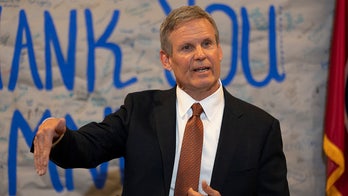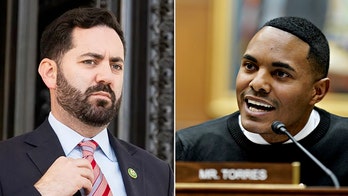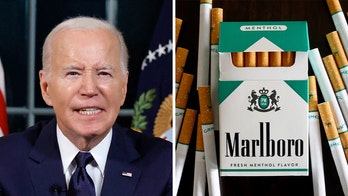The Senate is poised to take a difficult vote Wednesday afternoon that would delay a cap on the fees banks charge retailers each time a consumer's debit card is swipe for a purchase, and members and lobbyists on both sides of the issue have been working overtime for their cause.
But it's a vote senators are loathe to take, again, one that puts them between two major forces in their home states: the merchants and community and credit union bankers. A senior Senate Democratic leadership aide tells Fox that the provision is not expected to get the necessary 60 votes for passage. Regardless, members are not happy about the roll call vote.
The Fed, in December, devised a 12 cent cap per transaction set to take effect July 21, per the direction of a provision authored by Sen. Dick Durbin, D-Ill., in last year's financial regulatory reform law.
The Durbin amendment caught bankers off guard, and its powerful lobbyists have been working hard to find some way to delay or defeat it. They set their sights on an amendment to an economic development bill, currently on the Senate floor, authored by Senators Jon Tester, D-Mont., and Bob Corker, R-Tenn., which seeks to delay for one year the implementation of the cap.
The Tester-Corker provision directs the Fed to determine the possible effect on businesses and to take into account all the costs that go into a debt card and its use.
The original Durbin amendment was designed to provide a carve-out for smaller banks and credit unions, but opponents of the provision say that will not ultimately be the case. Durbin tried to reassure the opposition Wednesday that he would "be there" if his legislation harms that sector, but the number two Senate Democrat did not appear to persuade his colleagues on the other side of the argument.
Populist outrage has flowed from both sides, with banks both the victims and the boogeyman at alternating moments.
Durbin, in a speech he has made countless times since his legislation passed, said the banks, in the Tester-Corker amendment, want to kill his measure "in the cradle." Durbin reminded colleagues that taxpayers bailed out banks, and now it's time for payback.
"Let me remind those who are following this debate, the taxpayers of America were asked to stand by these banks in one of their darkest hours," Durbin said, acknowledging that the banks repaid the loan, but added, "Now they come to us and say we want you to continue this subsidy, this interchange fee subsidy, 50% of which go to the three largest banks in the United States of America. Well, I think it's time for us to say no. I think it's time to stand for consumers and small businesses across America who have no voice, no power and deserve our help in making this system fairer, more transparent and more competitive."
"Make no mistake, those unintended consequences will be felt all across rural America..For those who think it will work, there's not a regulator out there who will tell you it will," Tester, who is up for re-election in 2012, warned. "I'm saying let's slow down a little bit...Let's not try to solve one problem and create three others. And lets not take shots at folks in my neck of the woods who were not part of the meltdown."




